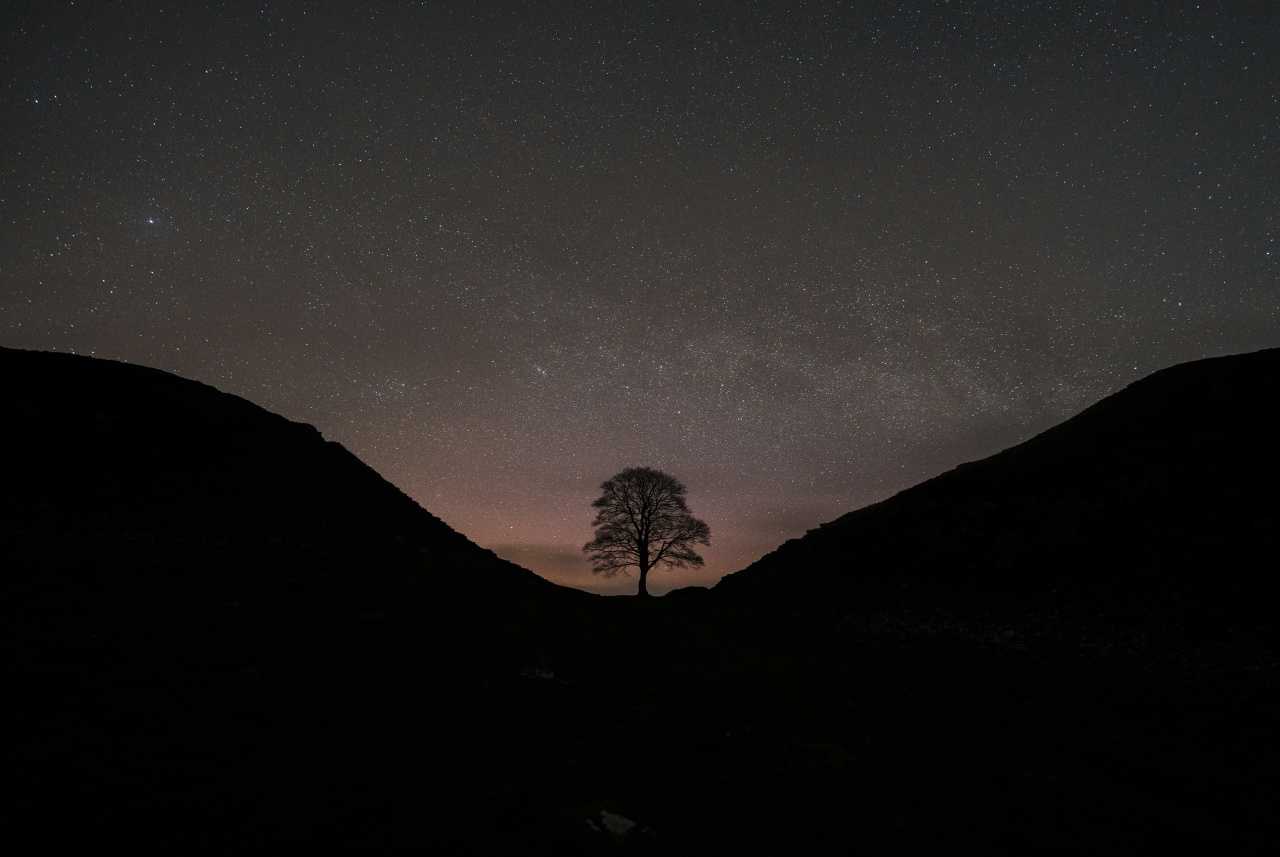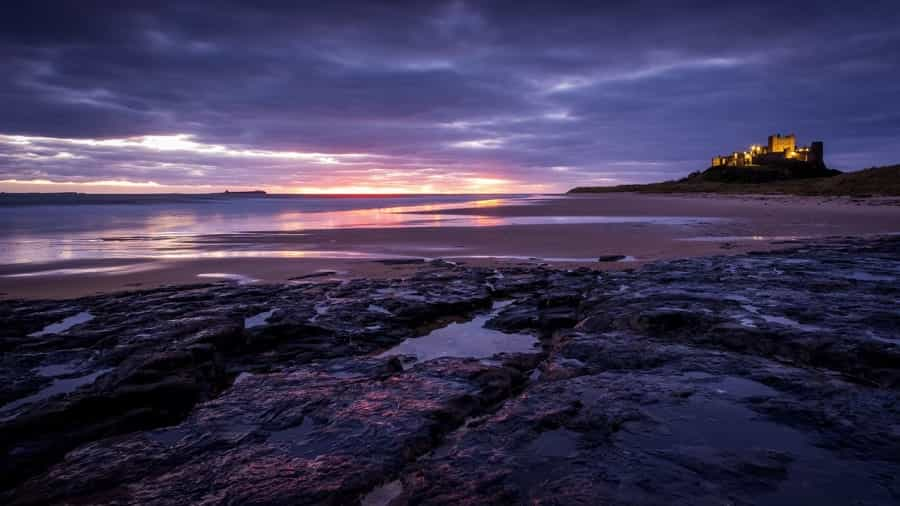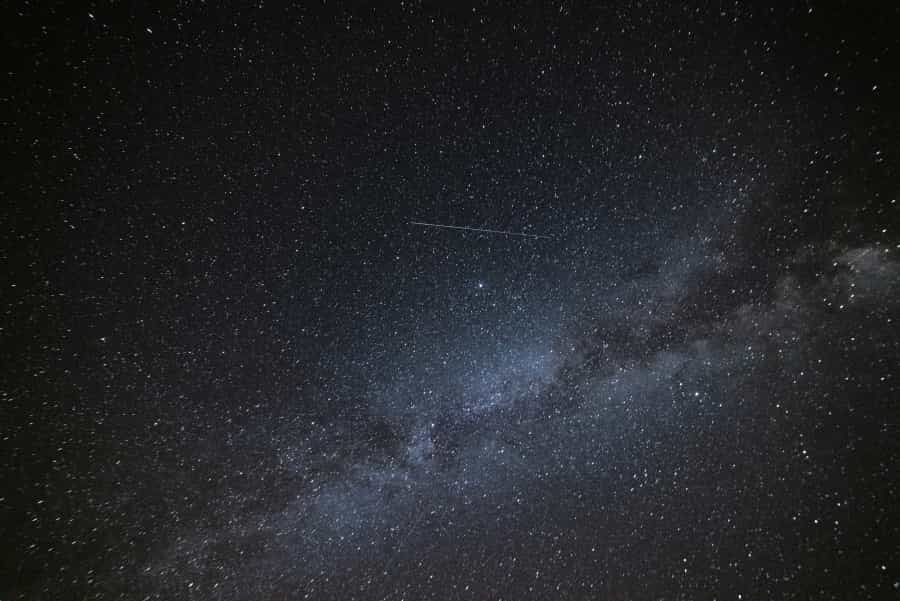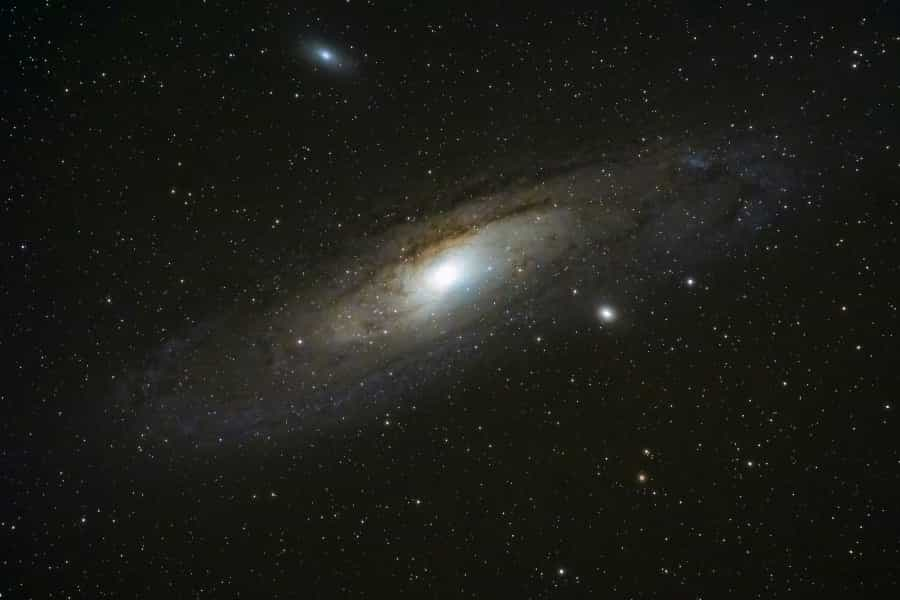Stargazing in Northumberland National Park

In 2013 Northumberland National Park became the first place in England to be awarded International Dark Sky Park (Gold Tier) status by Dark Sky International, in recognition of its superb conditions for stargazing. Its extremely low levels of light pollution and a commitment to preserving these mean that Northumberland Dark Sky Park (NDSP) is now Europe’s largest area of protected night sky. If you’re interested in learning more about the stars, you couldn’t have come to a better place.
Stargazing is enchanting, romantic and free – potentially the perfect holiday activity. Our guide to stargazing in Northumberland National Park will introduce you to Dark Sky Discovery Sites throughout the park, help you find stargazing events and provide handy tips for making the most of your experience.
Best places to stargaze in Northumberland National Park

Kielder Observatory
Set within the Kielder Water & Forest Park, the superb Kielder Observatory opened in 2008 and has since welcomed more than 20,000 visitors every year to learn more about the cosmos. Designed by Charles Barclay architects to complement the local landscape, it’s open all year round and home to specialist and computer-controlled telescopes capable of viewing the planets, nebulae and distant galaxies, sophisticated astrophotography equipment, two high-tech observatory turrets and an outdoor viewing deck. Unsurprisingly, it’s rated the best place to see stars in the UK by the Campaign to Protect Rural England.
The observatory hosts more than 700 events every year for people of all ages and levels of knowledge, including observatory tours, presentations, themed planet nights and family sessions. Led by experienced astronomers, the Main Evening Events run for about three hours (recommended for age 12+. from 8pm) and cover all aspects of the observatory’s programme, with plenty of time to use the telescopes. They’re deservedly popular, so booking in advance is essential.
Cawfields Quarry
Close to Hadrian’s Wall, the car park at the former Cawfields Quarry is a designated Dark Sky Discovery Site. Its lack of light pollution, easy access for the public and great sightlines of the sky above make it one of the best sites for stargazing in the UK. It has a dedicated stargazing platform on its sheltered picnic site, an information board with stargazing tips, 24-hour bathroom facilities and the added bonus of great reflections in the water of the quarry lake at night.
Go Stargazing’s Cawfield page has information about the site, current weather conditions and the best time to visit, as well as details of local stargazing events that take place nearby.
Stonehaugh Pavilion
Set within a wildflower meadow in Kielder Forest, this tranquil spot is another Dark Sky Discovery Site, where it’s possible to view the Milky Way, the Andromeda Galaxy, thousands of stars and even the Aurora Borealis (Northern Lights) with the naked eye when conditions are good. Its Dark Sky Pavilion offers shelter to budding astronomers while still having views of the sky from its open circular courtyard, while the local astronomy organisation, Stonehaugh Astronomy, has built a small observatory here and hosts occasional stargazing events.
For details of local conditions throughout the year, Go Stargazing’s Stonehaugh page is well worth a visit.
Harbottle and Alwinton
On the eastern edge of the park, the small village of Harbottle is another great choice if you’re planning an evening of astral observation – its ruined 12th-century castle provides a dramatic backdrop to a family stargazing session. The national park’s quiet rural car park in nearby Alwinton is another of the area's Dark Sky Discovery Sites, and Go Stargazing’s Alwinton page has details of the best times to visit for optimum viewing.
More observatories in Northumberland National Park

Battlesteads Dark Sky Observatory
Just outside the boundary of the national park in Wark, the observatory at Battlesteads is a public facility with the added bonus of a village location and convenient facilities at an on-site hotel, bar and restaurant.
Hosted by the professional astronomers of local stargazing organisation AstroVentures, it has powerful telescopes and binoculars for visitors to use, a collection of meteorites and free wifi (useful for those stargazing apps). It holds regular events including talks, drop-in sessions, astrophotography courses and stargazing sessions (booking in advance is essential).
The Twice Brewed Inn
If you fancy a more relaxed stargazing session with a couple of local ales thrown in, the friendly Twice Brewed Inn in the south of the park has good star watching facilities and hosts regular events. Visitors receive an introductory presentation in its purpose-built lecture theatre before getting the chance to use the large-aperture telescopes outside. The pub also has a 360-degree planetarium that hosts regular shows and is an extra boon in the event of poor weather. Details of stargazing events, planetarium shows and accommodation are available on the pub’s booking page.
Stargazing events and festivals
The dark skies of Northumberland National Park and a wealth of dedicated facilities mean that whatever time of year you visit, you stand a good chance of finding a stargazing event to attend. Here are some places to start looking:
- Kielder Observatory stargazing events
- Battlesteads Observatory stargazing events
- Twice Brewed Inn stargazing events
- Go Stargazing’s events page – a searchable database that lists numerous locations in the park that host stargazing events (just enter ‘Northumberland National Park’)
Tips for successful stargazing

Stargazing in Northumberland National Park gives you the chance to see galaxies like the Milky Way, star clusters, planets and constellations, as well as (if you’re lucky) shooting stars and the Northern Lights. Here are a few tips on how to make the most of your trip:
-
The best time for stargazing is on moonless nights in autumn and winter, when nights are longer and visibility is best.
-
Check the weather forecast before you go. Cloudless nights are best.
-
Choose a night with no moon (a new moon) to avoid light interference.
-
If you’d like to see shooting stars, the UK has several annual meteor showers that are both predictable and reliable – look out for the Quadrantids in January, the Lyrids in April and the Perseids in July/August.
-
Keep warm, especially in winter. Wear lots of layers, a warm jacket, a hat and gloves. An extra blanket is useful too.
-
Bring a comfortable chair or a cushion to sit on.
-
A pair of binoculars will help you see more, and a stargazing app for your smartphone is great for helping identify what you can see – good ones to try include Stellarium, Star Walk 2 and Night Sky.
-
Bring plenty of food and a hot drink.
-
Allow your eyes to adjust to the darkness (which takes about 20 minutes), and avoid bright white lights – try carrying a red cycle light or torch instead. Set your phone to its night-time setting.
-
To take the best pictures, make sure your phone is set to its nighttime mode and use a tripod if you can to keep it as still as possible. If you have a manual camera, try using a wide-angle lens or a wide aperture, and an ISO setting of between 800 and 3200.
Safety and etiquette
-
Always follow the Countryside Code, respect the environment and leave no trace.
-
Keep noise to a minimum to avoid disturbing wildlife and other stargazers.
- Let someone know where you’re going and when you plan to be back, and ensure you have a safe and clear path back to your vehicle at night.
With Dark Sky Discovery Sites galore, high-tech observatories and a dedicated community of astronomers, Northumberland National Park is one of the best places for stargazing in the UK. If you’ve never tried this fascinating nocturnal activity before, now is the time to start.
If you’re planning to make your stargazing part of a camping holiday, check out Pitchup’s range of campsites in Northumberland National Park.
Resources:
Northumberland National Park Website